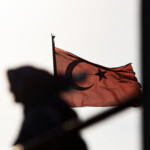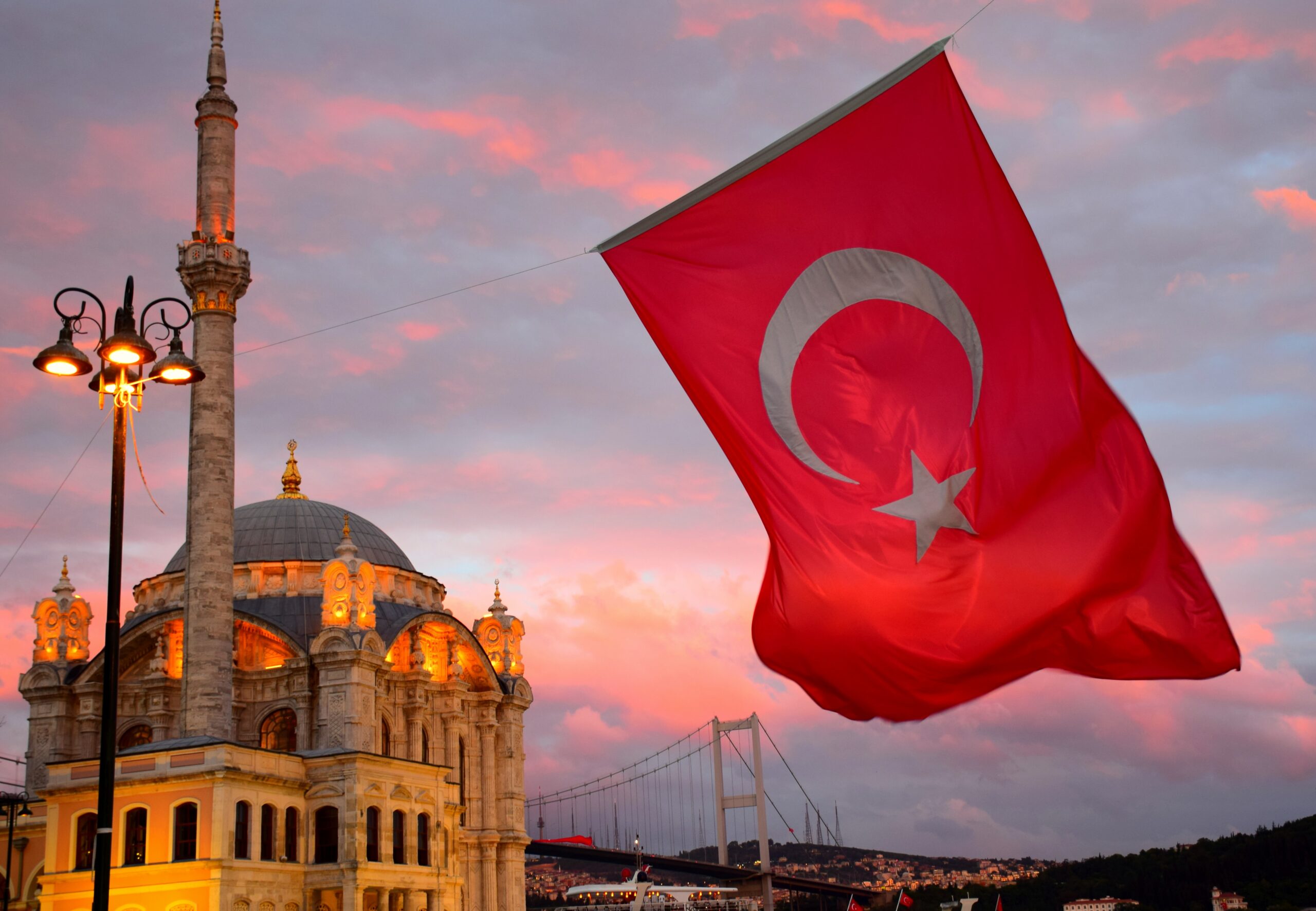“For days now, we see double-dyed figures of the CHP mumble about’ ‘change’ without elaborating what they mean. Leadership, or structural change? Is the time ripe for abandoning the old-fashioned CHP and building a new party? Nobody addresses these issues clearly. The scene is babelesque, a dialogue of the deaf, a debate bordering on demagoguery, which angers voters even more.”
Better late than never, as some would say. In this case, it took about two months for Turkey’s fragmented opposition bloc to half-heartedly admit election defeat and, following its traditional pattern, fall out with one another.
The developing story reveals, day after day, the reality behind the once-pompously presented opposition project, the“Table of Six,” formed to unseat Erdoğan. Under the barrage of statements from various parties, the voter is confronted with the fact that almost the entire campaign was a bundle of horse trading and cunning calculations, peppered with mistrust disguised under false smiles, and a cynical swoop down upon deputy seats from the minor parties represented at “the Table”.
The conclusive picture so far is as follows: CHP leader Kemal Kılıçdaroğlu’s eagerness for candidacy in the presidential race, was so beyond proportion and so visible that he was apparently seen as more than willing to hand out deputy seats to the minor conservative parties—no matter how disproportionate their demand was to the number of their voters.
They have come out victorious in the horse-trade: Utilizing the alliance rules to their benefit, five right-wing parties of the “Table of Six” were given a total of 39 seats from the CHP’s quota. The most spectacular examples of what one critic called “political looting” are the Future Party (GP), led by Ahmet Davutoğlu, and the Felicity Party (SP), led by Temel Karamollaoğlu, both of whom are identified as political Islamists. Each of them were given 10 seats by Kılıçdaroğlu. The DEVA Party, a relatively moderate player, got 14 seats. A rough calculation shows that each of these parties had no more than 70- thousand votes nationwide. (The overall number of the electorate who went to the ballot boxes in the May elections were nearly 60 million.)
The defeat was already obvious in the parliamentary leg of the first round of the elections on May 14, and it became clear that about 420 seats of the 600 seat parliament had gone to conservative, Islamist, ultranationalist, far-right parties, whether they supported Erdoğan or not. In other words, a constitutional majority.
So it is no wonder that there has been no expression of regret or admission of defeat from the five members of “the Table” until very recently. Their silence was understandable: they had managed to enter Parliament and had gotten what they wanted. Later research also showed that the branches and voters of these parties, in particular the Good Party, had neglected to go to the ballot boxes in the presidential leg.
Now, statements from Davutoğlu, whose shiftiness in TV appearances was impossible not to notice, and Meral Akşener, make it clear to dismayed and furious opposition voters that they did not really believe—all through the election campaign—that Kılıçdaroğlu would defeat Erdoğan. In spite of this, they kept occupying “the Table of Six” and shrewdly waited until they had been able to maximize their seats during “table talks.”
Particularly happy and self-assured is Davutoğlu, who avoided questions throughout the election campaign about his role as Erdoğan’s prime minister in the “bloody summer of 2015” —when Turkey was shattered by terror attacks—and about his Syria policy—which called for regime change and ended with a massive refugee inflow.
Apparently enjoying the demise of independent media in Turkey, these political figures now keep attacking Kılıçdaroğlu, targeting him as the scapegoat for the defeat. They are not being held accountable, simply because there are no longer any tough journalists to push these figures to tell the truth.
The question is whether or not Kılıçdaroğlu deserves to be the sole target. It is apparent that the real loser of the elections is the main opposition and its leader — or, rather its voters—who had to face an existential let down of sorts. To make matters even worse, we still see a defiant Kılıçdaroğlu. He refuses wrongdoing, and the more he talks publicly, the more erratic he sounds: “I dare Erdoğan to set up ballotboxes tomorrow, let’s see who wins.” He has turned into laughing stock and, in the eyes of loyal voters, fallen into disgrace—chiefly because of his constant denial.
Inevitably, two months after the elections, the CHP, founding party of the Turkish Republic, is now in a gigantic vortex of infighting and accusations between its various fractions, which for decades operated as “interest groups for internal power and glory. As Kılıçdaroğlu lashes back at the calls for resignation, more and more are asking whether or not the CHP has as a party has come to the end of the road.
The most recent polls display that 80% of the voters and 68% of the party cadres want “change.” But Kılıçdaroğlu counts on party bylaws, giving him nearly absolute powers to solidify a loyal segment of proponents, which he sees as the only path to staying in power. In other words, the CHP today is a microcosm of Turkey in general.
For days now, we see old or double-dyed figures of the CHP, representing different cliques of “secular Kemalism,” mumble about “change,” without elaborating what they mean. Leadership, or structural change? Thorough soul-searching or a change of vision? Is the time ripe for abandoning the old-fashioned CHP and building a new party, with a real social democrat identity? Nobody addresses these issues clearly. The scene is babelesque, a dialogue of the deaf, a debate bordering often on demagoguery, which angers the voters even more.
With the local elections seven months away, eyes are nevertheless on Ekrem Imamoğlu, mayor of Istanbul, who following the defeat has raised a red flag against Kılıçdaroğlu. But so far, he is only slaloming between old party figures and trying to find a way to build his own road map. He doesn’t have enough backing within the party, whose corridors are occupied by a blend of opportunists and glory seekers.
The most likely scenario —confirmed by my sources from the party— is that despite Imamoglu’s demands, Kılıçdaroğlu will not hand over leadership to him. It is likely that the latter paves the way for Özgür Özel, as a “temporary trustee” for the party, while Imamoğlu is expected to run the race for mayorship in Istanbul in late March 2024.
But Imamoğlu —and Turkey— face a gigantic dilemma, which nobody in the debate wants to articulate: Erdoğan wants to “win back” Istanbul, and for that, he will do his utmost to prevent Imamoglu from standing as a candidate.
The most likely scenario, if Imamoğlu moves ahead to a candidacy, is that Erdoğan-loyal legal machinery will accelerate against him. He already has three pending cases hanging over his head. Thus, the risks of Imamoğlu being handed over a “five-year-long political ban” (at best) are higher than his chances of keeping Istanbul.
A magnificent impasse for the CHP. Its obstinance and its cycle of internal debate may be overshadowing the fact that it is history—with no future to offer a changing, collapsing Turkey.
The views and opinions expressed above are the author’s and do not reflect those of the Free Turkish Press.


